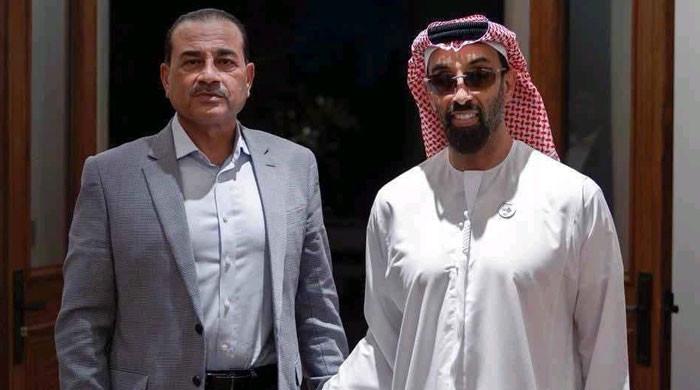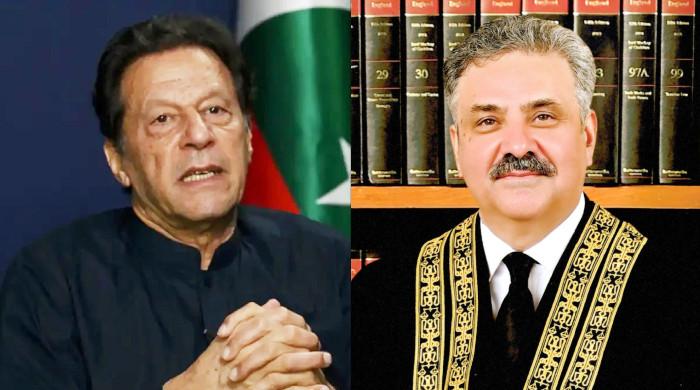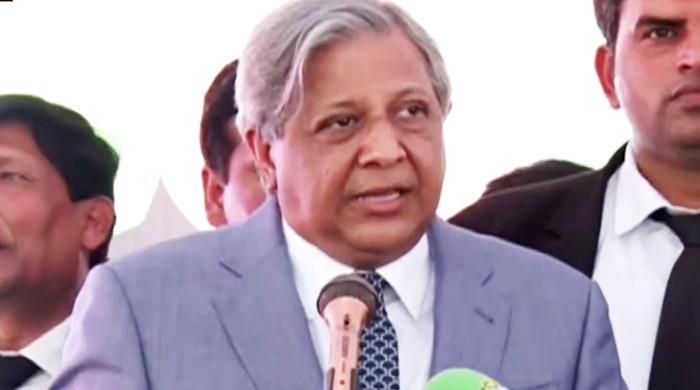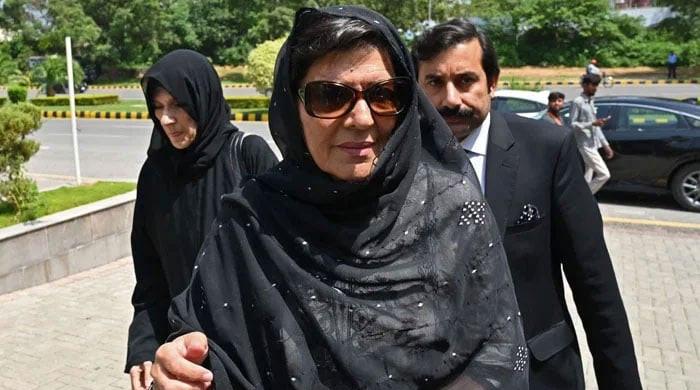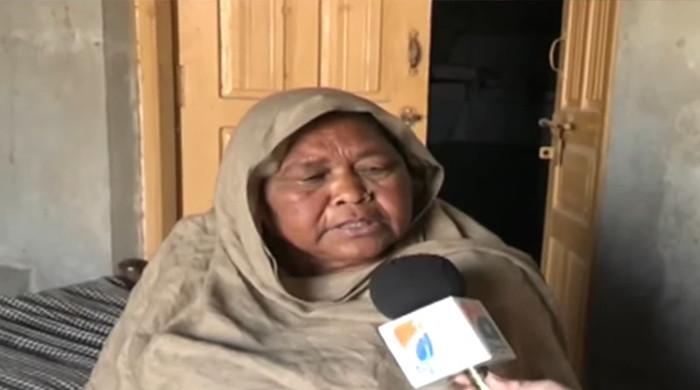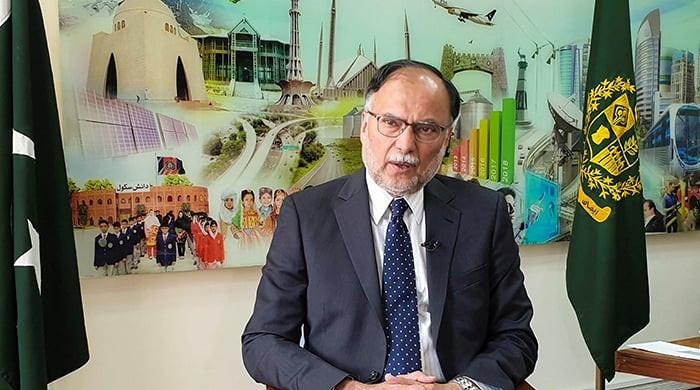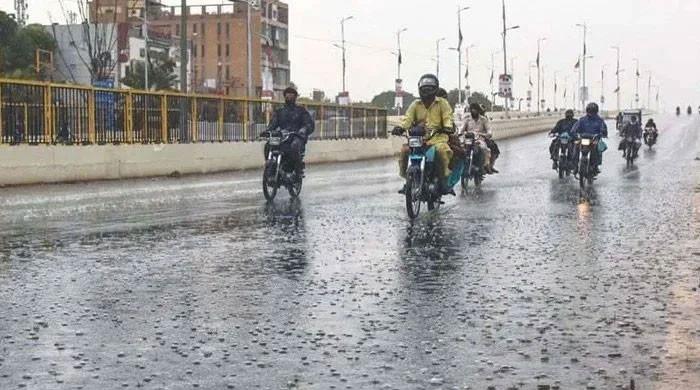In meeting with Emir Sheikh Tamim, PM Shehbaz reaffirms support for Qatar
Premier calls for unity among Muslims, pledges Islamabad's all out support for Doha in aftermath of Israeli attack
September 16, 2025
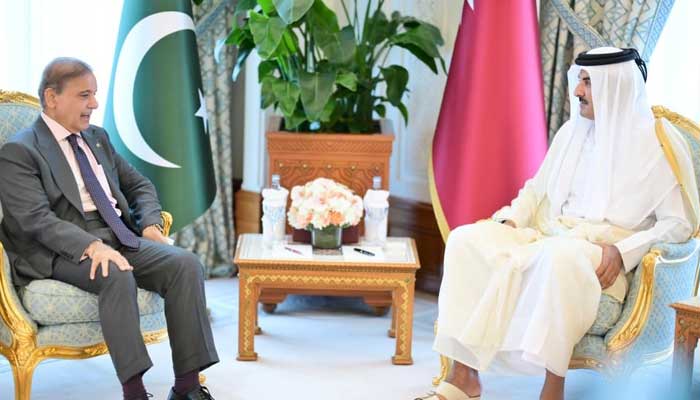
- PM Shehbaz meets Qatar's Emir Sheikh Tamim in Doha.
- Premier expresses solidarity, reaffirms support for Qatar.
- Israel's aggression must be stopped immediately, says PM.
DOHA: Prime Minister Shehbaz Sharif has underscored the significance of unity within the Muslim Ummah in the face of repeated Israeli provocations and reaffirmed support for Qatar in the aftermath of Israeli strikes in Doha.
Holding a bilateral meeting with Qatar's Emir Sheikh Tamim bin Hamad Al Thani, PM Shehbaz reaffirms Pakistan's all out support and solidarity with Qatar at this critical time, terming Israel's attack of September 9, a flagrant violation of the country’s sovereignty and territorial integrity, as well as a serious breach of international law.
In the "warm and cordial meeting" held on Monday, on the sidelines of the Emergency Arab–Islamic Summit, the premier reiterated Pakistan's strongest condemnation of the Israeli strike on a residential area in Doha, which led to the loss of precious lives and injured several others.
Deputy Prime Minister and Foreign Minister Senator Muhammad Ishaq Dar and Chief of Army Staff (COAS) Field Marshal Syed Asim Munir, were also present in the meeting.
Recalling his recent meeting with the Emir during his visit to Doha last week, Prime Minister Shehbaz emphasised, once again, that Pakistan and Qatar’s fraternal ties were historic, longstanding and abiding and they would grow stronger in the coming days.
He stressed that Israel's aggression in the Middle East must be stopped immediately and deeply appreciated Qatar’s decision to convene the Emergency Arab-Islamic Summit in Doha.
The prime minister further recalled that at Qatar’s request, Pakistan had sought an emergency session of the UN Security Council to discuss the deteriorating situation in the Middle East.
Meanwhile, Qatar's Emir Sheikh Tamim expressed appreciation for the prime minister's participation in the Emergency Arab-Islamic Summit as well as for his visit to Doha on September 12 to express solidarity with Qatar at this difficult time.
Both leaders agreed to remain in close contact in view of the unfolding situation in the region.
'Sanctions against Israel'
The Arab-Islamic Summit, a day earlier, called for wide-ranging sanctions on Israel, including an arms embargo and review of economic and diplomatic ties, in response to Tel Aviv’s "flagrant aggression" against Qatar and its ongoing war in Gaza.
Leaders from Muslim countries convened in Doha to mull the situation following Tel Aviv's aggression and demanded international accountability, warning that Israel’s repeated crimes and violations of international law pose a direct threat to regional and global peace.
The communiqué urged all states to hold Israel accountable by imposing sanctions, halting the transfer of weapons and military materials, reviewing their relations, and pursuing legal action.
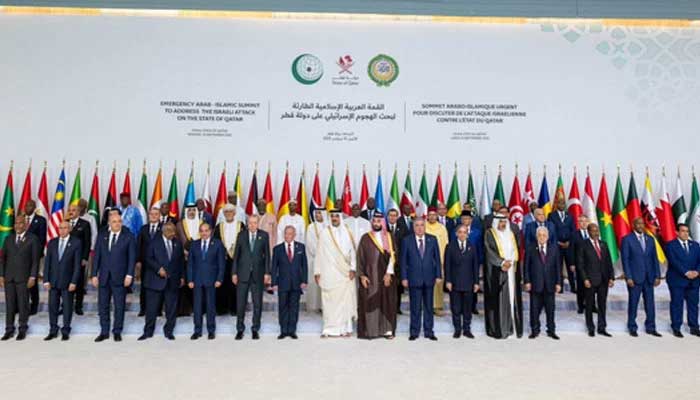
Reaffirming support support for an independent Palestinian state on the 1967 borders with East Jerusalem as its capital, rejecting any attempt to bypass or undermine the Palestinian cause, the sumit said Israel was responsible for genocide, ethnic cleansing, siege, and starvation against Palestinians and termed such actions as war crimes in violation of the Geneva Conventions.
Leaders condemned settlement expansion, forced displacement, and annexation attempts, describing them as crimes against humanity.
They called for urgent international action to end these practices, stressing that silence and inaction had emboldened Israel to persist in its aggressions and perpetuate a policy of impunity.




